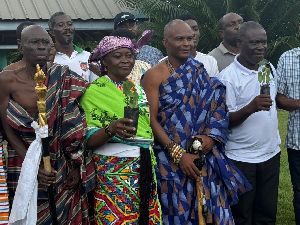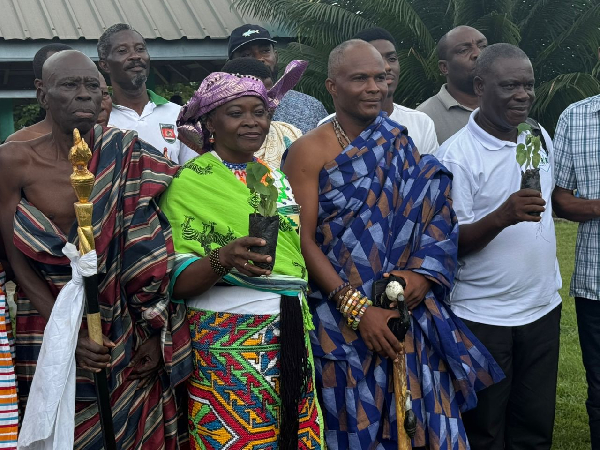 The initiative represents a small but focused effort to engage communities in ecological restoration
The initiative represents a small but focused effort to engage communities in ecological restoration
Togbe Tudedzi I, a development chief of Liati Wote, has called for stronger collaboration among state institutions to address ongoing environmental degradation in the Volta Region.
His remarks came at the conclusion of a community-led tree planting initiative aimed at restoring vegetation on Mount Afadjato and reducing the risk of landslides.
The three-day exercise, organized by Jolinaiko Ecotours and Stepping Stones for Africa (Green and Clean Hub), brought together residents, volunteers, and local authorities to plant trees in degraded areas around Liati Wote.
The event ended on Saturday, June 7, 2025, with a closing ceremony attended by traditional leaders, government officials, and environmental advocates.
Togbe Tudedzi I, who is also the CEO of Jolinaiko Ecotours, emphasized the urgent need for coordinated action among institutions such as the Environmental Protection Agency and the Forestry Commission.
“We must commit to ending the indiscriminate felling of trees for short-term gain. Our future depends on preserving the forests that sustain us,” he said.
Representatives from the Forestry Commission also highlighted the growing risk of landslides in the area due to ongoing deforestation.
Tordey Gershon Amaylo, a Customer Service Officer at the Commission’s Ho office, noted, “Without immediate reforestation efforts, communities near Mount Afadjato will continue to face soil erosion and environmental instability.”
Fidelia Grand-Gadon, Suriname’s Ambassador to Ghana and other African countries, also attended the event. Drawing on her upbringing in a rainforest environment, she spoke about the deep connection between human life and nature.
“The environment is not separate from us—it provides balance, food, and shelter. If we destroy it, we threaten our own survival,” she said.
The initiative represents a small but focused effort to engage communities in ecological restoration. Organizers say that beyond the tree planting, continued education and public involvement will be crucial to ensuring long-term impact.
AM/KA


